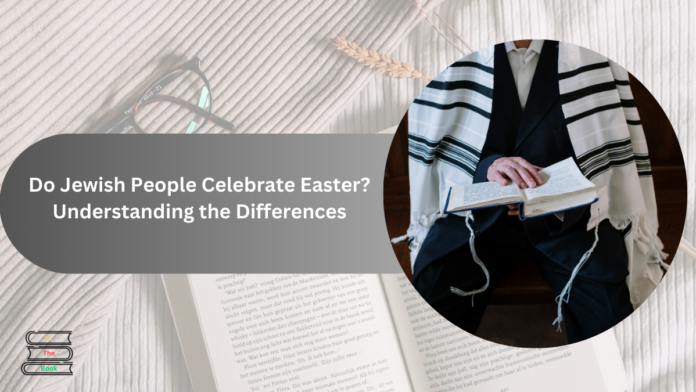Introduction: A Distinct Perspective on Easter
Easter is a major Christian festival that celebrates the resurrection of Jesus Christ, an event Christians believe occurred on the third day after His crucifixion. This holiday symbolizes the triumph of life over death and is marked by joyful celebrations, church services, and various cultural traditions. However, as Easter holds profound significance for Christians, it is viewed differently by Jewish people. So, do Jewish people celebrate Easter? The answer lies in a combination of theological beliefs and historical context.
The Jewish Perspective on Easter
- Distinct Religious Traditions Easter, as observed by Christians, is not a festival recognized in Judaism. Instead, Jewish people celebrate Passover (Pesach), which commemorates the liberation of the Israelites from slavery in Egypt. Passover is a biblically mandated festival, as described in Exodus 12:12-14:
“On that same night I will pass through Egypt and strike down every firstborn of both people and animals, and I will bring judgment on all the gods of Egypt. I am the Lord. The blood will be a sign for you on the houses where you are, and when I see the blood, I will pass over you. No destructive plague will touch you when I strike Egypt. This is a day you are to commemorate; for the generations to come you shall celebrate it as a festival to the Lord—a lasting ordinance.”
Passover involves special rituals, such as the Seder meal, which recalls the Israelites’ escape from Egypt and God’s protection during the final plague. - Historical and Theological Differences Jesus, who was Jewish, celebrated Passover, a crucial part of Jewish tradition. However, Jewish people do not recognize Easter because it is based on the resurrection of Jesus, an event they do not accept. The belief in Jesus as the Messiah and his resurrection is central to Christianity but is not part of the Jewish faith. As noted in John 10:22-24 and John 19:19-21, many Jews at the time of Jesus did not accept his claims of Messiahship or his resurrection.
- Biblical Commandments and Observance The Jewish faith is guided by the commandments and festivals outlined in the Hebrew Bible, particularly in books like Leviticus. For example, Leviticus 23:4-7 specifies the timing and observance of Passover and the Feast of Unleavened Bread:
“These are the Lord’s appointed festivals, the sacred assemblies you are to proclaim at their appointed times: The Lord’s Passover begins at twilight on the fourteenth day of the first month. On the fifteenth day of that month, the Lord’s Festival of Unleavened Bread begins; for seven days you must eat bread made without yeast.”
Jewish observance focuses on these Biblically mandated festivals, and since Easter is not mentioned in the Hebrew Bible, it is not recognized or celebrated. - Differences in Celebration Dates The dates for Jewish festivals like Passover are fixed and derived from the Hebrew calendar. For instance, Passover always starts on the 15th day of Nisan. Conversely, Easter’s date varies annually, which can cause confusion and scepticism among Jews regarding its legitimacy as a divine ordinance.
Messianic Jews and Easter
While traditional Judaism does not celebrate Easter, some Messianic Jews, who believe in Jesus as the Messiah and embrace certain aspects of the Christian faith, observe It. They do so to commemorate Yeshua’s (Jesus’) resurrection and integrate it with their Jewish heritage. Their celebration of Easter is supported by their interpretation of scriptures like Romans 10:9, which emphasizes faith in Jesus for salvation.
Conclusion: A Respectful Understanding
Easter is a significant Christian holiday commemorating Jesus Christ’s resurrection. For Jewish people who do not accept Jesus as the Messiah, Easter does not hold religious significance. Instead, they celebrate Passover, a Biblically mandated festival that aligns with their faith and historical traditions. Understanding these differences fosters respect for each tradition’s unique beliefs and practices.
FAQ
Click Here To Read More

Ross, an exam specialist with a passion for education, writes comprehensive articles on exam results and admit cards. His expertise ensures students receive reliable information and useful tips to excel in their exams.



























